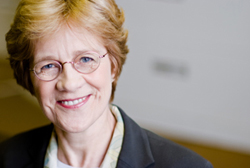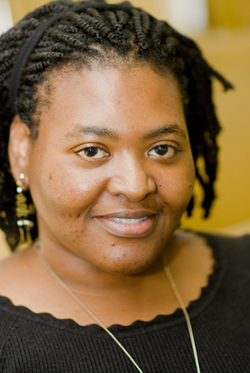New Faces at TC
New Faces at TC
New faculty and staff share their perspectives and experience
Ellen Meier
Associate Professor of Computing and Education, Department of Mathematics, Science and Technology
What fields will you be teaching?
My courses address various aspects of technology integration into P-16 schools. One of my classes examines the use of technology as a catalyst for school reform efforts, and another examines leadership implications of technology for 21st century educational practices. A third course I offer investigates the impact of technology on education as described in the emerging literature.
What was the academic path that led you to TC?
A variety of professional experiences have shaped my academic development. I began my career as a teacher in an experimental urban school, and became interested in understanding how educational institutions change. I finished my master's degree in administration during this period. While raising my family, I worked as a consultant with a national network of educational innovators. This laid the groundwork for my concentration on broad-based reform efforts in my doctoral work in the Leadership Department at Teachers College. A related focus has been the educational potential of technology. Besides the obvious learning benefits of tools such as science probes, for instance, technology itself can serve as a very useful means of helping educators redesign educational practices in more student-centered ways.
What are your academic passions?
My research focuses on how urban teachers can enhance their instructional repertoire to teach for understanding using technology. I am interested in how teachers' beliefs, classroom approaches and use of technology change over time with the support of appropriate professional development. Examining the context-the role of school organizations, leadership practices and assessment-is also needed to understand changing instructional practice.
Although technology has the potential to serve as a catalyst for larger school reforms, this promise has been largely unrealized because of piecemeal understandings of the role technology can play and simplistic understandings related to "computerizing" education. I currently co-chair the New York Board of Regents' Council on Technology Policy and Practice, and these issues are a key concern for the State. For the past 10 years, as Co-Director of the Center for Technology and School Change at TC [which Meier continues to be], I have witnessed the need to expand our knowledge base in the fast-changing field of technology and education. Policymakers, who must make appropriate and equitable decisions about where to invest school improvement funds, are looking for direction in this challenging arena.
Felicia Moore
Assistant Professor of Science Education, Department of Mathematics, Science and Technology
What fields will you be teaching?
My main area of teaching and research is elementary pre-service science education, although I teach courses for our masters and doctoral students in the science education program. I consider this a fortunate position to be in because I have the opportunity to prepare teachers K-12 and to provide experiences for those who desire positions in academia and in other fields relevant to science education. My research agenda is to improve the science experiences not only for teachers (teacher education and professional development), but also for students that are traditionally underserved in science.
What was the academic path that led you to TC?
I earned my Ph.D. in Science Education from Florida State University, my M.S. in Biology and Secondary Education from North Carolina Agricultural and Technical State University and my B.S. in Biology from UNC-Chapel Hill. I also completed a two-year postdoctoral fellowship at Michigan State University, while in residence at TC during my first year. As a postdoctoral fellow in the National Science Foundation's Center for Curriculum Materials in Science, I worked on several projects ranging from environmental literacy to developing science curriculum materials that addressed issues of diversity in planning, teaching and assessing science for diverse groups of students.
In 2005, I was one of five awardees of the Equity and Ethics Scholarship from the National Association for Research in Science Teaching, and the following year I received a Race, Culture and Diversity Research Grant from TC.
What are your academic passions?
My academic passion is to be the best researcher/educator that I can be. I consider my position a privilege and love the work that I am doing. My passion also involves helping others to reach personal goals and dreams through education.
Published Monday, Nov. 19, 2007

